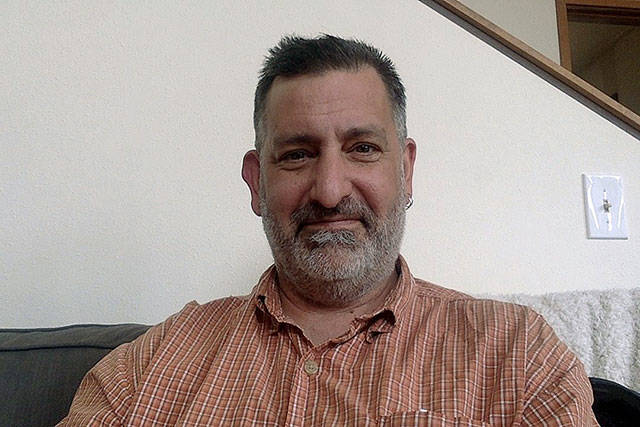In the 14 years that passed after Paul Nelson discontinued syndication of his Auburn-based radio show, and through several personal moves, he stowed his programming archive wherever he could – in closets, storage units, what have you.
But thanks to a grant from King County’s 4Culture, the onetime Auburn resident, disc jockey, poet and intellectual organized his nearly 10 years of radio programming into a cohesive archive and recently donated the whole thing to Auburn’s White River Valley Museum.
“We got a grant about a year and a half ago from 4 Culture to catalogue this historic archive, and so that’s what we’ve been doing,” Nelson said. “Then we got the bright idea to let someone else manage the archive, someone who wouldn’t have so many other projects going that were unfunded.
“The White River Valley Museum was a natural fit because (Museum Director Patricia Cosgrove) is an amazing person, because the museum is a world-class, small-town museum, and we trusted the care they would take of the archive,” Nelson explained.
Among the archive’s glittering gems are:
• Approximately 360 radio programs;
• About 1,000 unique interviews, among them of activist Bill Moyers, poets Allen Ginsberg, Wanda Coleman, Diane diPrima and Sam Hamill, Lummi spiritual leader Beaver Chief (Fred Jamison), yogi Bhagavan Das, priestess Phyllis Curott, futurist Barbara Marx Hubbard and historian Kenneth Davis;
• Public affairs programs distributed regionally and nationally on KING-FM, KZOK, KMTT, KJR AM/FM, KGON-Portland, KISM-Bellingham and many other stations.
While Nelson really digs his archive going to a museum, seeing his work headed there also seems passing strange to him.
“It doesn’t seem like that long ago, and I don’t feel like an historic person, but when you think of how technology has changed since the beginning of our non profit, It Plays in Peoria Productions, it’s a considerably different audio world that we live in, a considerably different world,” Nelson said.
“Those old tapes look like museum really relics, they really do, and it feels weird to not feel like an old person yet be categorized as someone who has done work that has been accepted in a museum, in a place that deals with history,” Nelson added.
With a grant from 4Culture, Nelson founded It Plays in Peoria Productions at his home in Auburn in December 1993, specifically to produce public-affairs programming. Under its wing, Nelson established other organizations and projects, among them: SPLAB (Northwest Spoken Word LAB, now known as Seattle Poetics LAB); Global Voices Radio, and Auburn Community Radio.
Nelson lived and worked in the Auburn area from 1992 to 2009, a significant portion of his professional life. At the height of his syndication, his program aired on as many as 18 radio stations every week.
In 1999, Nelson built a sound studio and poetry center in Auburn. He prided himself on being an Auburn community supporter and interviewed many local residents, among them: community historian Mae Yamada; author Stan Flewelling; Cosgrove; Auburn mayor Chuck Booth; county executive John Ladenberg; farmers Greg & Lorna Lynn; and community activist Lee Valenta.
“That lasted until about 2004, so it was about 10 years of almost weekly programs. Sometimes when we needed a break or what have you, we would run a rerun of old programming. But there were at least 450 hours of original programming, and we did it because that was what the nonprofit was chartered to do,” Nelson said.
“When we stopped doing the syndicated show, we didn’t want to take that up again, because, of course, the radio situation had changed, and so we focused more on literary arts, and we still create a lot of literary arts, and we still do a fair amount of interviews, but we don’t broadcast them, we put them online under the URL americanprophets.org,” Nelson said.
Among Nelson’s published works are the epic poem “A Time Before Slaughter,” which documents the pre-history and early history of the town known until the early 1890s as Slaughter and thereafter as Auburn.
Hilary Pittenger, curator of collections at the White River Valley Museum, says she is excited to start working with these treasures.
“While it may take a few years, we plan to fully catalogue this collection, create digital copies and make them accessible to museum patrons and staff for research and programs, and host them on our website, accessible to researchers around the world,” Pittenger said.
“I remember Paul as a goateed intellectual with a wily smile,” Cosgrove said. “He has a perfect radio voice, and using that, he brought both the Auburn community and a much larger audience a wide variety of intellectual, poetic and thoughtful discussions.”


